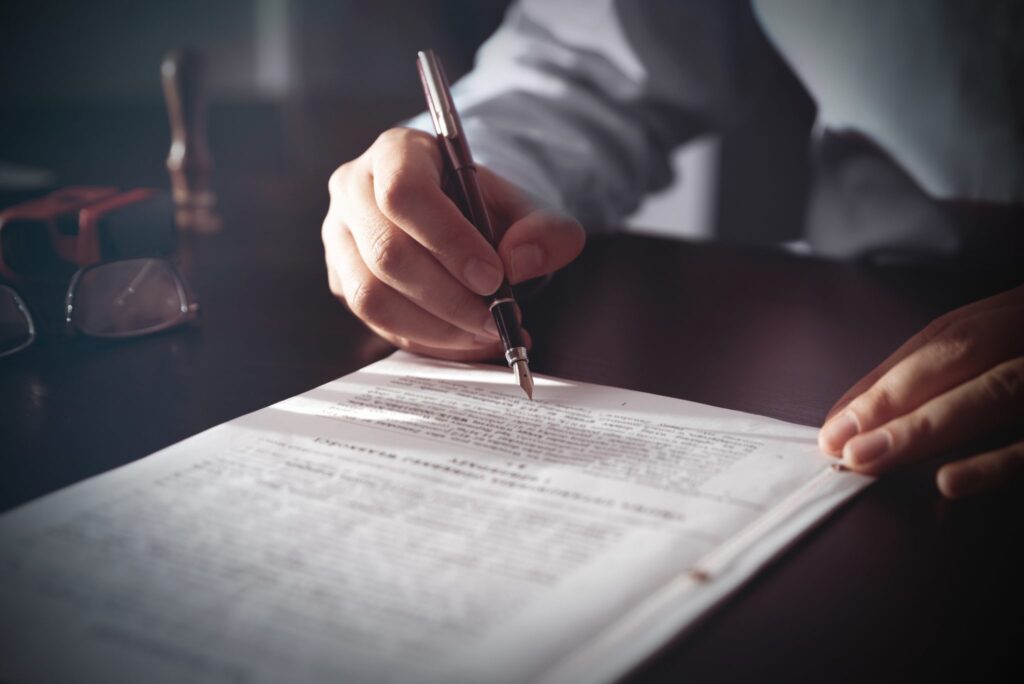I HAVE BEEN APPOINTED AS AN EXECUTOR IN A WILL, NOW WHAT?
I HAVE BEEN APPOINTED AS AN EXECUTOR IN A WILL, NOW WHAT?
One of your family members passed away and suddenly you have been appointed as an executor to the deceased Will. What should you do now? And what is an executor? Before we list down your duties as an executor, we must first understand what is an executor. Based on Section 2 of the Probate and Administration Act 1959, an ‘executor’ can be defined as:
“A person to whom the execution of the last will of a deceased person is, by the testator’s appointment, confided and includes a person deemed to be appointed executor as respects settled land”
In simple words, an executor is a person appointed by the testator (person who writes a Will) in a Will to carry out the wishes of the testator once he passed away. This means that the executor’s role begins as soon as the testator passed away. Now, what are the duties of an executor?
1. NOTIFY THE RESPECTIVE ORGANISATION OF THE TESTATOR’S DEATH
Once the testator passed away, the appointed executor needs to notify the relevant organisations and/or agencies of the death of the testator. One of the important agencies that need to be notified is the Inland Revenue. When a person dies and there is a Will, the executor is responsible to pay any remaining taxes owed by the deceased by using the deceased’s estate. This was stated in Section 74 of the Income Tax Act 1967. Other than that, the executor also needs to notify all banks used by the testator.
2. LOCATE THE ORIGINAL WILL
Once you have been appointed as an executor and the testator passed away, the first thing you need to do is to locate the original Will and then apply to the High Court for Grant of Probate to validate your appointment as an executor. This is because one of the requirements in applying for a Grant of Probate is to provide an original copy of a Will.
2. APPLY FOR GRANT OF PROBATE
When a person died leaving a Will, the executor needs to apply for a Grant of Probate and not a Letter of Administration. Letter of Administration only comes in when a person died without leaving any Will (died intestate). As mentioned above, when a person is granted with Grant of Probate by the High Court, he is allowed to administer the assets of the deceased including property, bank accounts, shares, etc. Without Grant of Probate, the assets of the deceased will remain frozen. The executor can either make an application by himself or engage a lawyer to assist in the application.
3. IDENTIFYING THE ASSETS AND PAY THE LIABILITIES
After the Grant of Probate has been obtained by the executor, the executor needs to gather all the assets and liabilities of the deceased and ensure that they are accounted for on the Will. This includes bank statements, insurance policies, titles of the real estate, outstanding debts, and other financial documents. Once the assets have been identified by the executor, he must to settle all debts owed by the deceased before proceed to distribute the assets to the beneficiaries. Usually, if there is any outstanding debts left behind, whatever money is still in the deceased’s bank account will be used to pay off the debts.
4. DETERMINE THE BENEFICIARIES AND DISTRIBUTE THE ASSETS
The executor must read and understand the Will of the testator, and then locate and identify all beneficiaries stated in the Will. This is because, when the testator left a Will, whatever assets and properties that he owned will be distributed accordingly to the beneficiaries.
5. MAINTAIN THE PROPERTY AND ASSETS
There will be a situation where the executor is unable to locate the beneficiaries for several months or years. When this happens, the executor will be responsible for maintaining the properties until it is properly distributed in accordance with the Will.
6. PREPARE STATEMENT OF ACCOUNT
When estate administration of the testator is completed, the final duty of the executor is to prepare a statement of account. This statement of account is to show all monies received and distributed throughout the estate administration. It is important for the executor to keep all receipts and produce them when the court or beneficiaries request it. This is to show that the deceased’s estate is administered properly by the executor.
In conclusion, depending on the complexity of the deceased’s estate, the duties of the executor can go beyond the above list of duties. Other than being an executor, he also may become a trustee of the deceased’s estate and will hold the assets on trust for your beneficiaries until the distribution is completed.


















